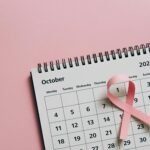Navigating life as a woman often feels like a rollercoaster ride, complete with unexpected twists, turns, and, yes, hormonal fluctuations. You might find yourself feeling exhilarated one moment and overwhelmed the next, all thanks to the beautiful complexity of your menstrual cycle. Understanding your hormonal health and the various phases of your cycle not only brings clarity to your emotional and physical experiences but also empowers you to make informed decisions about your well-being.
As we dive into this guide, realize that you are not alone in this journey. Most women experience similar challenges and questions when it comes to hormonal health, and together, we’ll explore practical advice and compelling strategies that can help you embrace each phase of your cycle. Let’s begin by demystifying the importance of understanding your cycle.
Understanding the Core Issue
What Are Hormones and Why Do They Matter?
Hormones are chemical messengers that play a crucial role in regulating various bodily functions, including mood, metabolism, and reproductive health. For women, estrogen and progesterone are two key players in managing the menstrual cycle. Each month, these hormones fluctuate, influencing everything from energy levels to emotional well-being.
The menstrual cycle typically lasts about 28 days, although it can vary from person to person. It’s typically divided into four main phases: the menstrual phase, the follicular phase, the ovulatory phase, and the luteal phase. Each phase has distinct characteristics:
- Menstrual Phase (Days 1-5): This is when you have your period, shedding the uterine lining. You might feel more fatigued and experience cramps, but it’s also a time for introspection.
- Follicular Phase (Days 6-14): Estrogen levels rise, and this phase is marked by increased energy and mood elevation. You may feel more social and extroverted during this time.
- Ovulatory Phase (Day 14): The release of an egg occurs, and you may notice a burst of energy, heightened libido, and peak fertility.
- Luteal Phase (Days 15-28): Progesterone increases, preparing your body for a potential pregnancy. You might feel mood swings, cravings, or bloating as your body gets ready for another menstrual cycle.
The Impact of Lifestyle on Hormonal Health
Lifestyle choices heavily influence hormonal balance. Factors such as diet, exercise, stress management, and sleep play a pivotal role in how well your body navigates these phases. Understanding the interplay between your lifestyle and hormonal health can aid in managing PMS symptoms, energy fluctuations, and overall well-being.
Practical Tips and Strategies
1. Nutrition: Fueling Your Cycle
The food you consume can significantly impact your hormonal health. Different phases of your menstrual cycle call for different nutritional needs.
-
During the Menstrual Phase: Focus on iron-rich foods to replenish what’s lost, such as leafy greens, beans, and lean meats. Stay hydrated, and consider incorporating herbal teas for their anti-inflammatory properties.
-
During the Follicular Phase: This is the perfect time to consume foods that boost serotonin, like bananas and omega-3 rich sources like salmon. A diet high in protein can also support muscle and tissue repair.
-
During the Ovulatory Phase: Energy is high! Consider incorporating healthy carbs to sustain your energy levels. Whole grains and fruits are excellent choices here.
- During the Luteal Phase: Hormonal fluctuations can cause cravings, especially for chocolate or carbs. Reach for dark chocolate when those cravings hit, as it provides magnesium, a mineral that can reduce period cramps.
2. Exercise: Moving with Your Cycle
Just as nutrition needs shift, so should your exercise regime throughout the month.
-
Menstrual Phase: Gentle exercises like yoga or walking can ease cramps and help with mood elevation.
-
Follicular Phase: As your energy surges, this is a great time to try high-intensity workouts or introduce strength training.
-
Ovulatory Phase: With peak energy levels, consider outdoor activities or sports.
- Luteal Phase: As energy dips, opt for lighter activities like swimming, stretching, or Pilates to help alleviate PMS symptoms.
3. Mindfulness: Managing Stress and Emotions
Stress can wreak havoc on your hormonal health. A toolbox of mindfulness practices can be your ally.
-
Meditation and Deep Breathing: Incorporating just a few minutes of meditation or deep breathing into your daily routine can lower cortisol levels, improving your overall hormonal balance.
- Journaling: Reflecting on your emotions can provide insights into how different phases of your cycle affect your mood and energy levels.
4. Sleep: Prioritizing Rest
Quality sleep is non-negotiable for hormonal health. Aim for 7-9 hours of rest. Establish a calming night routine, reduce screen time before bed, and consider sleep-promoting teas such as chamomile.
Real-Life Examples
Emily’s Journey
Emily, a 28-year-old marketing executive, struggled with debilitating cramps and mood swings every month. After doing some research, she discovered the importance of tracking her cycle. Using an app, Emily noted her dietary habits, energy levels, and mood variations throughout the month.
When she recognized that her PMS symptoms intensified when she consumed too much sugar and processed foods, she gradually adjusted her diet. By implementing the nutritional strategies outlined above, she noticed a marked improvement in her symptoms.
Emily also started incorporating yoga during her menstrual phase, significantly reducing her discomfort. Now, instead of dreading her period, she feels empowered and informed.
Sarah’s Work-Life Balance
At 35, Sarah, a single mother juggling two jobs, often felt overwhelmed by the demands of her life, especially in the days leading up to her period. Initially, she viewed her hormonal fluctuations as nuisances. However, after a friend encouraged her to consider her cycle’s impact on her daily life, Sarah began to see things differently.
By proactively planning her busy schedule around her follicular and ovulatory phases, Sarah found she could confidently tackle her biggest projects during her high-energy days and set lighter expectations during her luteal phase. This approach not only improved her productivity but also fostered a healthier work-life balance.
Overcoming Challenges
Common Challenges Women Face with Hormonal Health
Understanding your cycle can be a challenge, particularly in managing the emotional ups and downs tied to hormonal fluctuations. Here are some common obstacles and suggested solutions:
-
PMS Symptoms: Mood swings, bloating, and fatigue can be frustrating. Identifying what triggers your symptoms through tracking can provide insights and help you develop coping strategies.
-
Lack of Awareness: Many women are unaware of how their cycle affects their day-to-day lives. Educating yourself about your cycle can demystify hormonal health and help you navigate each phase effectively.
-
Stress and Lifestyle Factors: Juggling responsibilities can lead to increased stress. Prioritize self-care and aim to incorporate small adjustments that align with your cycle.
- Unsupportive Environments: Sometimes you may not receive empathy or understanding from those around you, making it tough to talk about your hormonal health. Seeking a supportive community, whether online or in-person, can foster a space where you feel accepted and understood.
Conclusion
Understanding your hormonal health and cycle is not just about mitigating symptoms; it’s about reclaiming power over your body and emotions. As you’ve navigated through this guide, you’ve gained insights on nutrition, exercise, and self-care tailored to your cycle. Remember, every woman’s experience is unique, and it’s essential to approach this journey with kindness and patience toward yourself.
By acknowledging the complexities of hormonal health and your cycle, you’re taking an empowered step toward better understanding your body, leading to improved mental and physical well-being. Healing and balance are possible—and they start with you. Embrace your cycle with open arms and the knowledge that you’re not alone in this journey.
Make it a goal to track your cycle over the next few months, implementing small changes along the way. Celebrate your victories, both big and small, and remember: knowledge is just the beginning of transformation.














